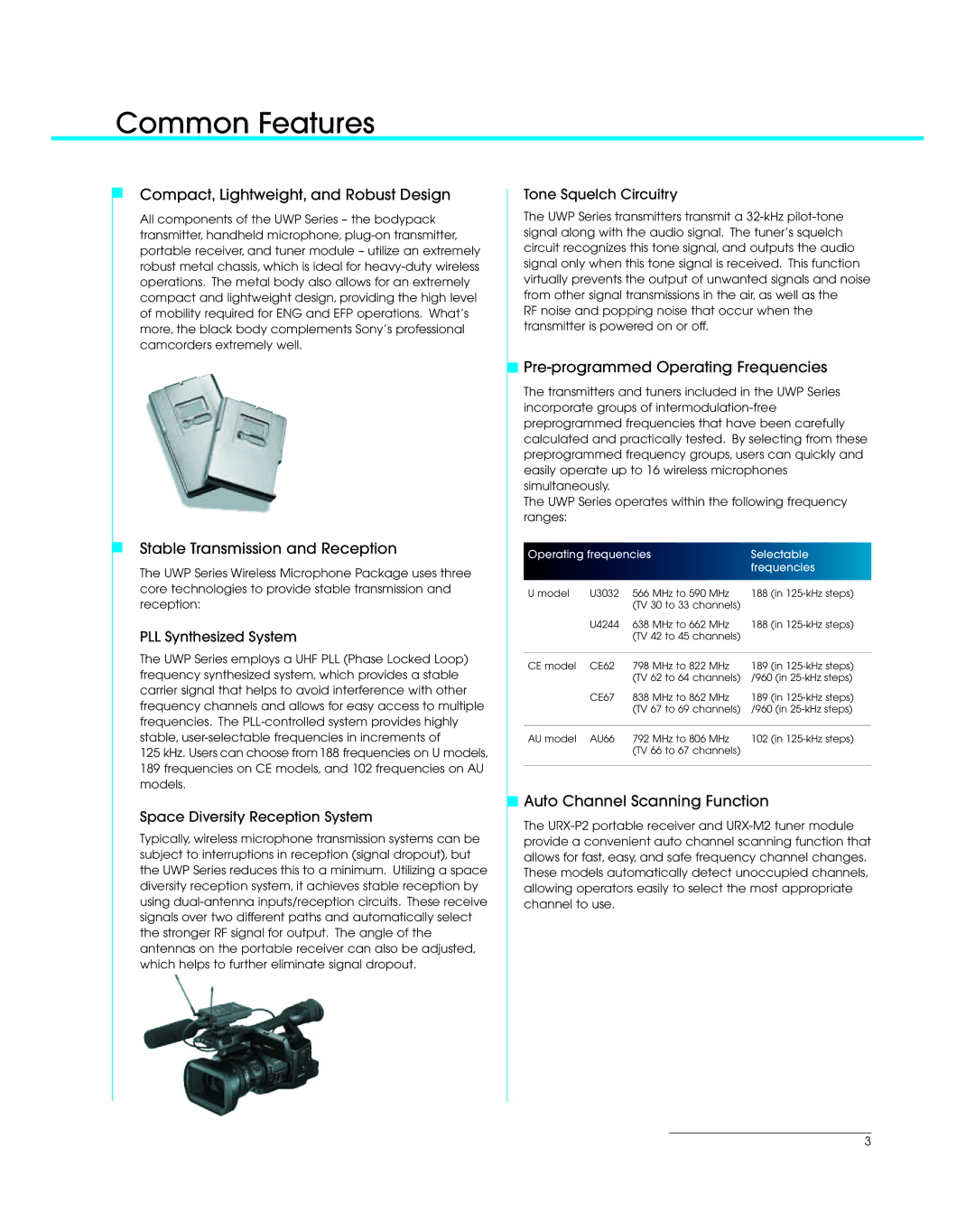
Common Features
Compact, Lightweight, and Robust Design
All components of the UWP Series – the bodypack transmitter, handheld microphone,
Stable Transmission and Reception
The UWP Series Wireless Microphone Package uses three core technologies to provide stable transmission and reception:
PLL Synthesized System
The UWP Series employs a UHF PLL (Phase Locked Loop) frequency synthesized system, which provides a stable carrier signal that helps to avoid interference with other frequency channels and allows for easy access to multiple frequencies. The
125 kHz. Users can choose from 188 frequencies on U models, 189 frequencies on CE models, and 102 frequencies on AU models.
Space Diversity Reception System
Typically, wireless microphone transmission systems can be subject to interruptions in reception (signal dropout), but the UWP Series reduces this to a minimum. Utilizing a space diversity reception system, it achieves stable reception by using
Tone Squelch Circuitry
The UWP Series transmitters transmit a
RF noise and popping noise that occur when the transmitter is powered on or off.


Pre-programmed Operating Frequencies
The transmitters and tuners included in the UWP Series incorporate groups of
The UWP Series operates within the following frequency ranges:
Operating frequencies | Selectable | ||
|
|
| frequencies |
U model | U3032 | 566 MHz to 590 MHz | 188 (in |
|
| (TV 30 to 33 channels) |
|
| U4244 | 638 MHz to 662 MHz | 188 (in |
|
| (TV 42 to 45 channels) |
|
|
|
|
|
CE model | CE62 | 798 MHz to 822 MHz | 189 (in |
|
| (TV 62 to 64 channels) | /960 (in |
| CE67 | 838 MHz to 862 MHz | 189 (in |
|
| (TV 67 to 69 channels) | /960 (in |
|
|
|
|
AU model | AU66 | 792 MHz to 806 MHz | 102 (in |
|
| (TV 66 to 67 channels) |
|
|
|
|
|

 Auto Channel Scanning Function
Auto Channel Scanning Function
The
3
